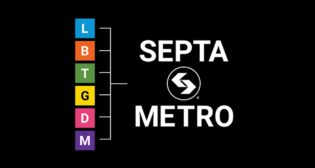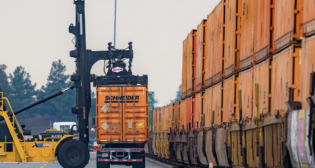
Flexible, Creative and Keenly Aware
Written by Chuck Baker, President, ASLRRAASLRRA PERSPECTIVE, RAILWAY AGE APRIL 2020 ISSUE: As with every other business in the country, short line freight railroad operations are increasingly impacted by the COVID-19 crisis, and it will get worse before it gets better. Those that can in our workforce are working remotely. Operations, dispatching and maintenance workers are heroically doing what they can to make the trains run on time. Many of our customers are under severe duress that affects our train schedules, loadings and unloadings, and ultimately our revenue. As of this writing on March 30, about 15% of our short lines report they have employees who have tested positive for COVID-19 or are in self-quarantine.
While our industry’s difficulties mirror those of the country as a whole, our railroads do have some inherent advantages. Much of our work is done outdoors where there is less opportunity for spreading the disease unwittingly, and where social distancing is less problematic. Many, albeit not all, short lines operate in rural areas where the virus has not yet spread as widely. We can move large volumes of product with very few people.
The Federal Railroad Administration (FRA) has responded quickly to the crisis by providing a relatively broad set of emergency waivers to a whole host of regulatory requirements that cannot be met because of social distancing and a reduced workforce. The list of regulations affected includes Parts 213, 214, 217, 218, 219, 220, 228, 229, 232, 234, 236, 239, 240, and 242. ASLRRA, along with AAR and APTA, submitted this request to the FRA, worked closely with their senior leadership to determine what was safe, necessary and possible, and we are grateful to the FRA for their support.
Like the rest of the country, we will see some relief from the recently enacted stimulus legislation measure, the Coronavirus Aid, Relief, and Economic Security Act (“CARES Act”), which will help the country attempt to weather this storm. As small businesses, most short lines will be able to take advantage of the Small Business Administration (SBA) loan programs contained in the latest legislation, including most prominently the SBA’s modified 7(a) “Paycheck Protection” loan program, which will make, and more important forgive, loans to cover eight weeks of payroll, rent/mortgage and utility costs.
As businesses across the country curtail their activities or shut down altogether, some short lines will lose business. This is already happening. Some good news, though, is that overall short lines are and will remain a critical link in the movement of products important to fighting the virus. A recent survey of our short line companies reveals dozens of short lines moving traffic that is related to medical and or cleaning products.
The Wisconsin & Southern Railroad (WSOR) has been contacted by a number of customers deemed as “Critical Infrastructure” during the COVID-19 outbreak, and their businesses will likely increase WSOR’s carloads. WSOR customer Schoeneck Containers makes food-grade containers now in high demand by takeout restaurants across the country, and the railroad expects volumes will stay steady and perhaps increase in the weeks ahead.
Wisconsin-based plastics customers Bemis Manufacturing Company and Plastic Ingenuity are predicting a 20% increase in production as a result of the crisis. GVT Rail, operating in New York and Pennsylvania, ships large volumes of plastic resin used in making masks, and chemicals used for hand sanitizer. These are critical raw materials essential to fighting the outbreak, and the railroad is doing everything possible to ensure uninterrupted and timely delivery. The Lancaster and Chester Railroad in South Carolina ships isopropyl alcohol, propylene glycol and sodium hydroxide, all of which are common ingredients in cleaning and personal hygiene products used by hospitals and other facilities.
Finger Lakes Railway in New York ships pharmaceutical salt. One of the RJ Corman railroads serves a plastics manufacturer that among many other items makes face shields for medical facilities. And, of course, hundreds of short lines carry the raw materials needed to produce consumer-grade paper goods such as toilet paper and paper towels, products that are flying off store shelves in record numbers as concerned Americans stock up to ride out this unsettling emergency.
The availability of these and many more products is something that most Americans never think about. And we’re OK with that! Short lines just want to do their jobs, reliably, cost-effectively, efficiently and safely. I am proud to report that short lines across the country are working hard to keep these products moving from origin to destination, and I am optimistic we will continue to get the job done. Ours is an industry that survived and grew by being flexible, creative and keenly aware of how to do more with less. I am confident that those characteristics will help us weather this storm as individual companies, and in the process contribute to the needs of our customers and the nation.



